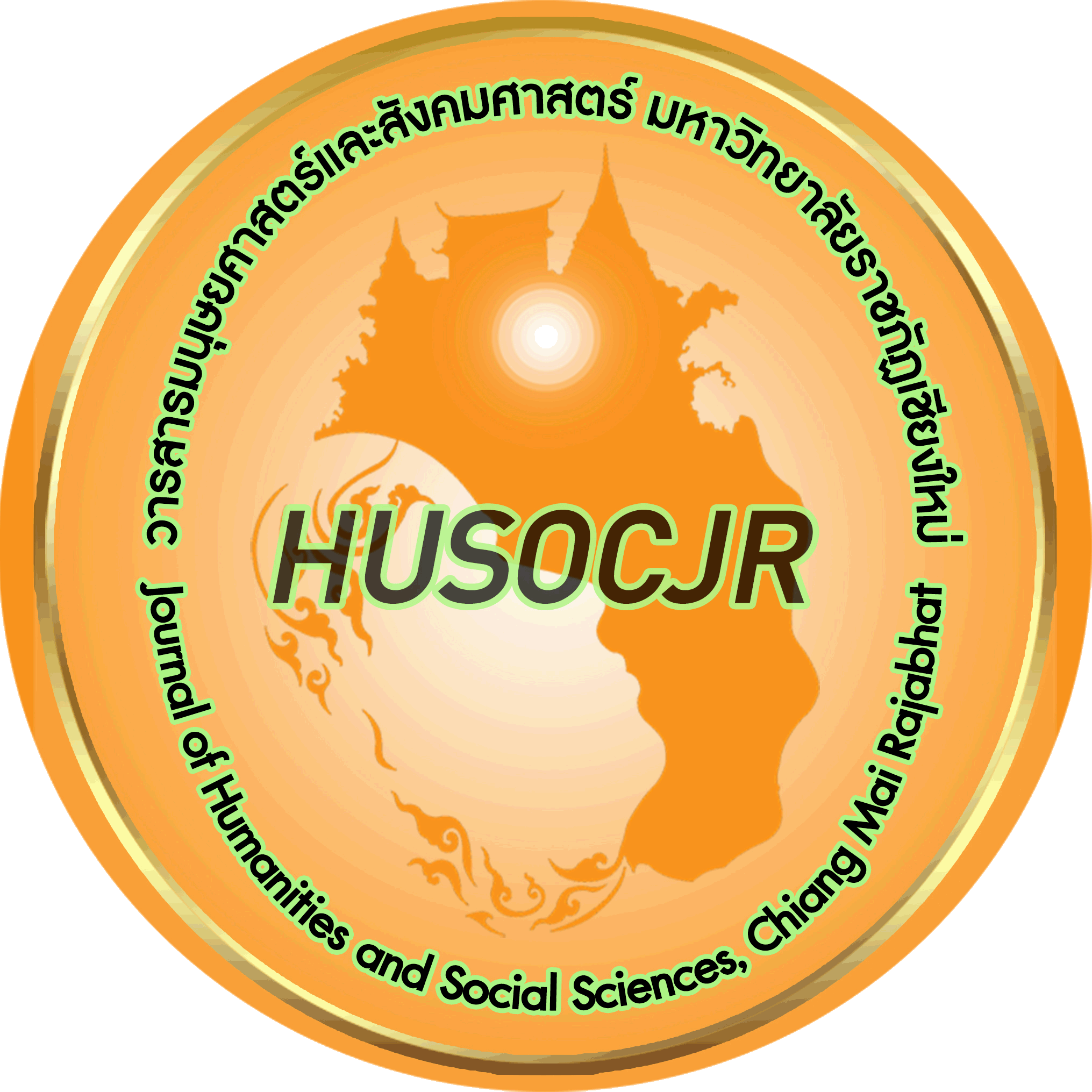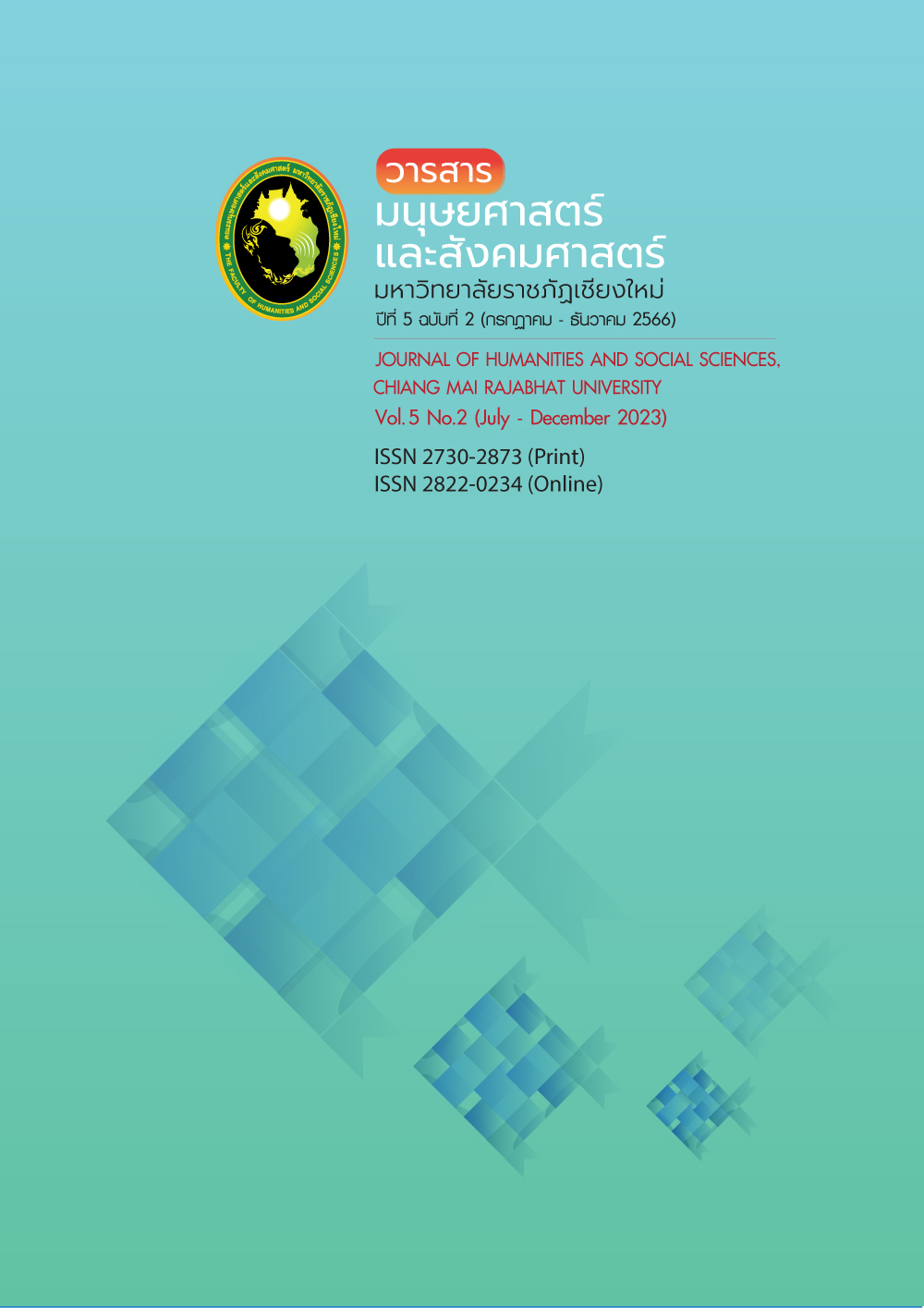English Language Education in Thailand: What Should Be Done
Main Article Content
บทคัดย่อ
This paper addresses the challenges facing English language education in Thailand and offers practical solutions to improve its quality. The authors begin by analyzing the current state of English education in the formal context and identifying areas of weakness. Through their analysis and experience as English teachers, they propose ways to enhance the quality of English language education in Thailand. The authors acknowledge that improving English education in Thailand is a formidable task, but one that is worth undertaking. The paper provides valuable insights and recommendations for educators, policymakers, and other stakeholders in the field of English language education in Thailand.
Downloads
Article Details

อนุญาตภายใต้เงื่อนไข Creative Commons Attribution-NonCommercial-NoDerivatives 4.0 International License.
* กองบรรณาธิการทรงไว้ซึ่งสิทธิในการพิจารณาและตัดสินการลงตีพิมพ์ในวารสาร
** ทัศนะและข้อคิดเห็นที่ปรากฎในบทความต่าง ๆ ของวารสารเป็นของผู้เขียน มิใช่ความคิดเห็นของกองบรรณาธิการ
และมิใช่ความรับผิดชอบของคณะมนุษยศาสตร์และสังคมศาสตร์ มหาวิทยาลัยวิทยาลัยราชภัฏเชียงใหม่
เอกสารอ้างอิง
Admission Premium. (2016). O-NET results: Better but still low. Retrieved from http://www.admissionpremium.com/news/671
Bangkok Post. (2018, November 5). Thai English proficiency drops. Retrieved from https://www.bangkokpost.com/thailand/general/1570042/thai-english-proficiency-drops
Chingos, M. M. (2013). Class size and student outcomes: Research and policy implications. Journal of Policy Analysis and Management. 32(2), 411–438.
Drew, C. (9 September 2023). The 4 principles of pragmatism in education. Retrieved from https://helpfulprofessor.com/pragmatism-in-education/
English First. (2020, January 20). EF English proficiency index 2020. Retrieved from https://www.ef.com/epi/
English First. (n.d.). EF English proficiency index. Retrieved from https://www.ef.com/epi/
International Trade Administration. (25 July 2022). Thailand country commercial guide. Retrieved from https://www.trade.gov/country-commercial-guides/thailand-education-services
Jacobs, G., & Renandya, W. (2018). Cooperative learning in language education. East Java, Indonesia: TEFLIN Publication.
Khaled, M. (2015). Advantages and disadvantages of grammar translation methods. Retrieved from https://mkhaledbh.wordpress.com/2015/11/14/advantages-and-disadvantages-of-grammar-translation-methods/
Kaewmala. (2012). Thai education failures – Part 4: Dismal English-language training. Retrieved from https://asiancorrespondent.com/2012/03/thai-education-failures-part-4-dismal-english-language-education/.
Kawasaki, J. (2021, December 8). 5 popular ESL teaching methods every teacher should know. Retrieved from https://bridge.edu/tefl/blog/esl-teaching-methods/
Krashen, S. (1985). The input hypothesis: Issues and implications. New York: Longman.
Mala, D. (2021, January). Long-overdue end of O-Net exams. Bangkok Post. Retrieved from https://www.bangkokpost.com/thailand/general/2044427/long-overdue-end-of-o-net-exams
Michael, R., & Trines, S. (2018, February 6). Education in Thailand. Retrieved from https://wenr.wes.org/2018/02/education-in-thailand-2
Ministry of Education. (2008). Basic education core curriculum: B.E. 2551 (A.D. 2008). Bangkok: Office of the Basic Education Commission.
The Nation. (November 2016). Thailand ranks near bottom in English proficiency: Survey. Retrieved from http://www.nationmultimedia.com/business/Thailand-ranks-near-bottom-in-English-proficiency--30218895.html.
National News Bureau of Thailand. (2016). PM urges Thais to improve English skills. Retrieved from http://nwnt.prd.go.th/centerweb/newsen/NewsDetail?NT01_NewsID=WNPOL5907090010009.
Ng, A. (29 August 2023). Andrew Ng: Opportunities in AI - 2023 [YouTube]. Retrieved from https://youtu.be/5p248yoa3oE?si=bIUPLsVqXm_GMqFs
OECD. (2016). Low-performing students: Why they fall behind and how to help them succeed. Paris: OECD Publishing.
OECD. (2018). Thailand. Retrieved from https://www.oecd.org/pisa/publications/ PISA2018_CN_THA.pdf
Pitsuwan, S. (2012). Driving Thailand’s economy to the global stage (A public talk). Retrieved from http://www.wu.ac.th/th/news/2253
Richards, J. C., & Rodgers, T. S. (1999). Approaches and methods in language teaching: A description and analysis. Cambridge: Cambridge University Press.
Richards, J., & Rodgers, T. (2001). Approaches and methods in language teaching. (2nd ed.). Cambridge: Cambridge University Press.
Sinlarat, P., & Thadphoothon, J. (2016). Integrating transversal competencies in education policy and practice (phrase III). Paris: UNESCO.
Shonubi, O. (2023, February 21). AI in the classroom: Pros, cons and the role of edtech companies. Retrieved from https://www.forbes.com/sites/theyec/2023/02/21/ai-in-the-classroom-pros-cons-and-the-role-of-edtech-companies/
Sureeyatanapas, P., Boonma, A., & Thalangkan, S. (2016). English proficiency requirements for engineering graduates at private organizations in Thailand. Engineering and Applied Science Research. 43, Special Issue (S1): The 6th KKU International Engineering Conference 2016, pp. 35–39. Retrieved from https://ph01.tci-thaijo.org/index.php/easr/article/view/69658
Tan, B. (ed.). (2004). Creative writing in EFL/ESL classrooms I. Serdang: UPM Press.
Thadphoothon, J. (2023). ELT for Sustainable Development: Texts and Methods. In Proceedings of the 4th Language, Society and Culture International Conference (The 4th LSCIC), May 12, 2023.
Thaiger. (2021, November 26). Thailand’s English proficiency level drops again, as the pandemic widens gap in education disparity. Retrieved from https://thethaiger.com/guides/education/thailands-english-proficiency-level-drops-again-as-the-pandemic-widens-gap-in-education-disparity
TOEIC. (2022). 2022 report on test takers worldwide - TOEIC® Listening & Reading test. Retrieved from https://www.ets.org/content/dam/ets-org/pdfs/toeic/toeic-listening-reading-report-test-takers-worldwide.pdf
Triwittayayon, T., & Sarobol, N. (2018). Factors Enhancing English Speaking Ability: Perspectives from Thai High School Students and Their Teachers. ThaiTESOL Journal. 31(1), 49-64.
OECD-UNESCO. (2016), Education in Thailand: An OECD-UNESCO perspective, reviews of national policies for education. Paris: OECD Publishing.
Wanich, W. (2014). The relationship between the CLT approach and Thai EFL students’ attitudes and motivation in learning speaking. Language Education and Acquisition Research Network Journal. 7(1), 106
Wang, Y. (5 December 2022). Low English Proficiency in Thailand Could Hinder the Country’s Development Prospects. Thailand Business News. Retrieved from https://www.thailand-business-news.com/business/94596-low-english-proficiency-in-thailand-could-hinder-the-countrys-development-prospects
Wongsothorn, A. et al. (2019). Innovative use of English language teaching as an international language in graduate studies in Thai universities. LEARN Journal. 12(2), 14-27.


